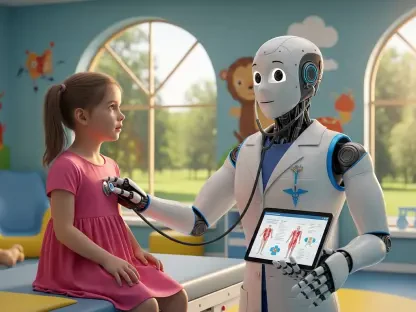A sudden transformation in a child’s behavior can be bewildering. Imagine a lively, playful child becoming distant and prone to sudden outbursts seemingly overnight. These abrupt changes are leaving loved ones puzzled and desperate for answers.
The Hidden Crisis Lurking Beneath the Surface
An elusive yet significant epidemic is afflicting children across the nation in subtle ways—Pediatric Acute-Onset Neuropsychiatric Syndrome (PANS) and Pediatric Autoimmune Neuropsychiatric Disorders Associated with Streptococcal Infections (PANDAS). These conditions can cause severe behavioral and psychiatric shifts in young patients, mirroring disorders like ADHD and autism. The urgent question arises: Why is something not being done to bring these conditions out from the shadows and into the light where they can be addressed effectively?
Untold Stories from Families Hit Hard
Behind clinical definitions lie countless stories of families struggling with the impact of PANS and PANDAS. Take Buckley Tant’s experience, for instance. At just six years old, Buckley faced a dramatic and unexplained change in behavior, leading to a misdiagnosis of multiple disorders for years. Finally, at nine, he received an accurate diagnosis of PANS, highlighting myriad challenges families encounter—social isolation, financial strain, and profound emotional impacts—as society grapples with understanding these disorders.
Diagnostic Challenges: Lost Time and Lost Opportunities
Misdiagnoses are alarmingly common with PANS and PANDAS, impacting treatment and lifelong outcomes. The swift onset of symptoms often leads healthcare professionals to label these as more recognizable disorders like ADHD or autism spectrum disorders, hindering appropriate care and sometimes worsening the child’s condition. Crucial time is lost in the process, compounding emotional and financial burdens for families navigating this crisis alone.
Expert Voices Call for Recognition and Action
The growing need for deeper awareness and proactive recognition of PANS and PANDAS is echoed by experts in healthcare and education. Pediatricians and mental health professionals stress the importance of early identification and treatment avenues. Recognition and understanding pave the way for better therapeutic strategies, ultimately offering a more hopeful future for children like Buckley.
Taking Action: Pathways Toward Change
Addressing the needs stemming from PANS and PANDAS requires coordinated efforts and viable strategies. States like Tennessee are taking promising steps by enacting laws mandating insurance coverage for essential treatments, which can be a model for others. Families, along with policymakers, have pivotal roles in influencing legislative directions, while healthcare providers must be equipped with a nuanced understanding of these disorders, ensuring accurate identification and treatment.
The magnitude of transformation required to confront PANS and PANDAS began with stories like Buckley Tant’s, underscoring both the challenges and the achievable victories. Articles challenging conventional approaches have been calling for a reimagined healthcare model that judiciously integrates scientific insights and empathy. Over time, sharper diagnostic acumen combined with legislative strides has forged a path toward recognizing and managing these disorders, yet issues still beg attention. To ensure meaningful progress, continued advocacy, widespread education, and resource allocation remain paramount in shaping a compassionate response to this understated epidemic.









